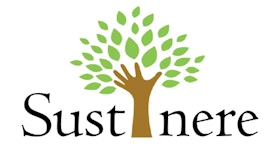On 31 March 2020, Singapore submitted its enhanced Nationally Determined Contribution (NDC) and Long-Term Low-Emissions Development Strategy (LEDS) document to the United Nations Framework Convention on Climate Change (UNFCCC). The enhanced NDC document updates Singapore’s climate pledge submitted in July 2015 under the Paris Agreement.
Singapore’s enhanced NDC now states an absolute emissions target to peak emissions at 65MtCO2e around 2030. Singapore will also expand the scope of the country’s pledge to include a seventh greenhouse gas (GHG), nitrogen trifluoride (NF3), within this peak emissions ceiling.
From 2020, the Carbon Pricing Bill also came into effect in Singapore and all facilities producing 25,000 tonnes or more of greenhouse gas emissions in a year will have to pay a carbon tax of $5 per tonne of greenhouse gas emissions from 2019 to 2023.
The six greenhouse gases that will be covered under the carbon tax are: carbon dioxide (CO2), methane (CH4), nitrous oxide (N2O), hydrofluorocarbons (HFCs), perfluorocarbons (PFCs), and sulphur hexafluoride (SF6). The facilities producing 25,000 tonnes or more of greenhouse gas emissions in a year will need to prepare an annual monitoring plan on their carbon emissions and these reports will have to be verified by independent third parties.
ISO 14064 is an internationally recognised standard used for carbon emissions reporting and verification, and frameworks and principles from this standard can be adopted by companies that wish to voluntary report on their carbon emissions, as well as those that are required to do mandatory reporting, such as the those impacted by the Carbon Pricing Bill in Singapore, the maritime sector (under the European Union (EU) shipping Monitoring, Reporting and Verification (MRV) Regulation) and the aviation industry (under the Carbon Offsetting and Reduction Scheme for International Aviation – CORSIA).
Singapore is stepping up our efforts at mitigation of climate change through industry initiatives, energy efficiency, transportation and waste and water. The first step to mitigation of climate change would be to understand how to quantify and report our greenhouse gas emissions, which is what ISO 14064 sets out to do.
This ISO 14064 course was developed by the Canadian Standards Association (CSA) and is delivered by Carbon Action. Carbon Action is a leading provider of carbon training in the United Kingdom and has the exclusive rights to provide CSA developed training courses to ISO 14064. Sustinere has partnered Carbon Action to present these courses to Singapore and the region.
This course consists of the following modules:
Quantification and reporting of greenhouse gas emissions for organisations (ISO14064-1:2018)
Dates: 23, 24, 25 September 2020 (3 sessions x 4 hours)
Duration: 2pm – 6pm (local time, Singapore GMT +8)
Verification and validation of greenhouse gas statements (ISO14064-3:2019)
19 - 23 October 2020 (5 sessions x 4 hours)
2pm – 6pm (local time, Singapore GMT +8)
Publish your content with EB Publishing
It's about who you reach. Get your news, events, jobs and thought leadership seen by those who matter to you.




